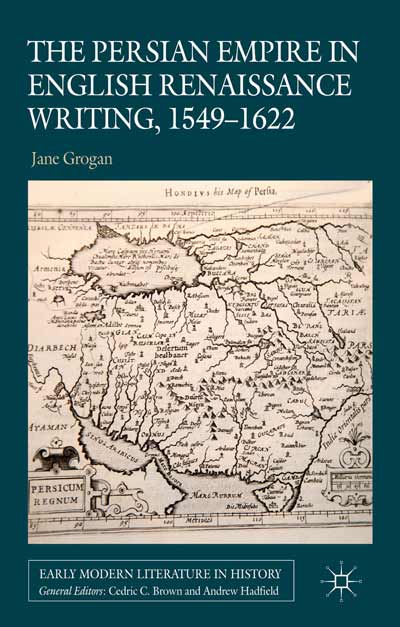 Grogan, Jane. 2014. The Persian empire in English Renaissance writing, 1549 – 1622. (Early Modern Literature in History). Basingstoke: Palgrave Macmillan.
Grogan, Jane. 2014. The Persian empire in English Renaissance writing, 1549 – 1622. (Early Modern Literature in History). Basingstoke: Palgrave Macmillan.The Persian Empire in English Renaissance Writing, 1549-1622 studies the conception of Persia in the literary, political and pedagogic writings of Renaissance England and Britain. It argues that writers of all kinds debated the means and merits of English empire through their intellectual engagement with the ancient Persian empire. It studies the reception of Xenophon’s Cyropaedia and the Histories of Herodotus, the bedrock of English conceptions of Persia and the Persian empire, in plays, poetry and political thought. Covering the period from the beginnings of Anglo-Persian relations under the auspices of the Muscovy Company in the 1560s and 1570s to the first Anglo-Persian military alliance in 1622, it traces the changing conception and uses of Persia – both Islamic and ancient – in the English literary and political imaginary, and demonstrates the contemporary uses of an idealized image of Persia rooted in the classical legacy.
Table of Contents:
- Introduction: Reading Persia in Renaissance England
- Classical Persia: Making Kings and Empires
- Romance Persia: ‘Nourse of Pompous Pride’
- Staging Persia: ‘To ride in triumph through Persepolis’
- Sherley Persia: ‘Agible things’
- Epilogue: Ormuz
About the Author:
Jane Grogan is a Lecturer in Renaissance Literature at the School of English, Drama and Film at University College Dublin, Ireland.